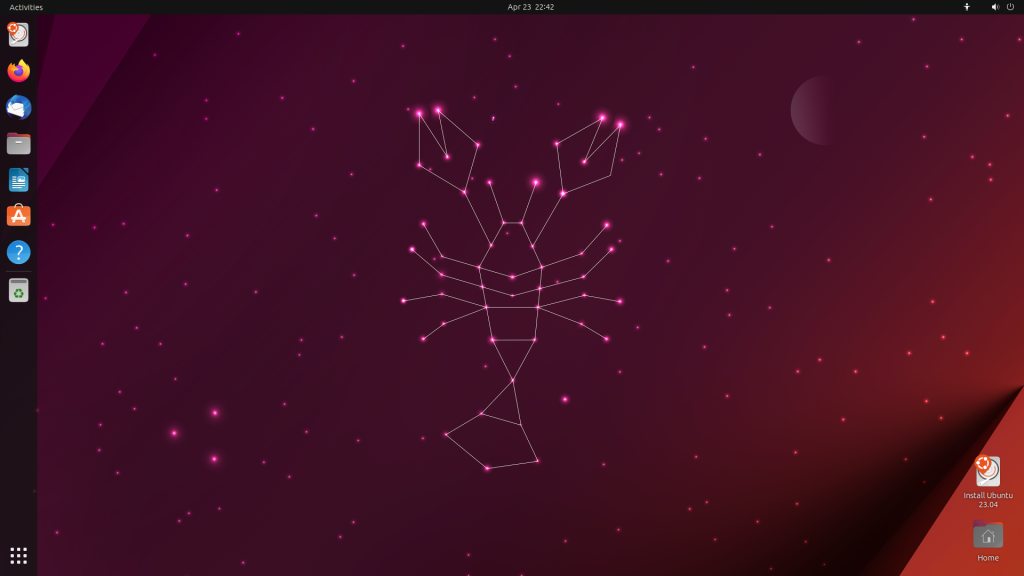Ubuntu, one of the most popular Linux distributions, has a rich and fascinating history that dates back to its inception in 2004. Created with the vision of providing a user-friendly and open-source operating system, Ubuntu has become a cornerstone in the world of Linux.

In this article, we will delve into the remarkable history of Ubuntu, highlighting its significant milestones, growing community, and its enduring impact on the world of technology.
1. The Birth of Ubuntu: Mark Shuttleworth’s Vision
In 2004, South African entrepreneur Mark Shuttleworth founded Canonical Ltd., the company behind Ubuntu. His vision was to create a Linux distribution that would be accessible to everyone, regardless of their technical expertise. The name “Ubuntu” itself is an African word meaning “humanity to others,” reflecting the project’s focus on collaboration and community-driven development.
2. Ubuntu’s First Release: Warty Warthog 4.10
On October 20, 2004, Ubuntu made its debut with the release of version 4.10, codenamed “Warty Warthog.” This initial release laid the foundation for what would become a groundbreaking operating system, offering a stable and user-friendly experience.
3. Evolution and Improvements: Hoary Hedgehog 5.04 and Beyond
Following the successful launch, Ubuntu continued to evolve rapidly. Version 5.04, codenamed “Hoary Hedgehog,” introduced significant improvements in performance and hardware support, garnering attention from a broader audience.
4. Unity Desktop Environment: A Shift in User Experience
With the release of Ubuntu 11.04, the distribution made a significant shift in its user interface by adopting the Unity desktop environment. This move was aimed at creating a more intuitive and touch-friendly experience, catering to both traditional desktops and emerging devices.
5. Expanding Ubuntu’s Reach: Ubuntu Server and Ubuntu Touch
Beyond the desktop, Ubuntu expanded its reach into other domains. The introduction of Ubuntu Server brought the power of Ubuntu to server environments, solidifying its position in data centers and cloud computing. Additionally, Ubuntu Touch aimed to establish a presence in the mobile market.
6. Ubuntu’s Long-Term Support (LTS) Releases
Ubuntu’s commitment to stability and reliability led to the introduction of Long-Term Support (LTS) releases. These versions, released every two years, offered extended support and security updates, making Ubuntu an attractive choice for enterprise users.
7. Unity’s Transition and Return to GNOME
In 2017, Ubuntu made another significant shift by discontinuing the Unity desktop environment and returning to GNOME as the default desktop. This move was well-received by the community, aligning Ubuntu with one of the most popular desktop environments in the Linux world.
8. Snapcraft.io: Revolutionizing Software Distribution
Snapcraft.io, introduced by Canonical, marked a new era in software packaging and distribution. Snaps, the universal packaging format, allowed developers to distribute applications with all dependencies bundled, ensuring easy installation across various Linux distributions.
9. Ubuntu’s Growing Community and Worldwide Impact
Ubuntu’s success can be attributed to its thriving and diverse community. Ubuntu’s philosophy of openness, inclusivity, and collaboration has inspired a global community of developers and enthusiasts contributing to its growth and development.
10. Ubuntu Today: Focal Fossa 20.04 LTS and Beyond
As of the most recent LTS release, Ubuntu 20.04 “Focal Fossa,” the distribution continues to be a dominant force in the Linux ecosystem. Its focus on stability, security, and ease of use makes it a top choice for individuals, businesses, and educational institutions.
Ubuntu’s journey from its humble beginnings in 2004 to its current status as a leading Linux distribution has been nothing short of remarkable. Its commitment to open-source principles, user-friendly design, and strong community support has solidified Ubuntu’s place in the hearts of millions of users worldwide.


